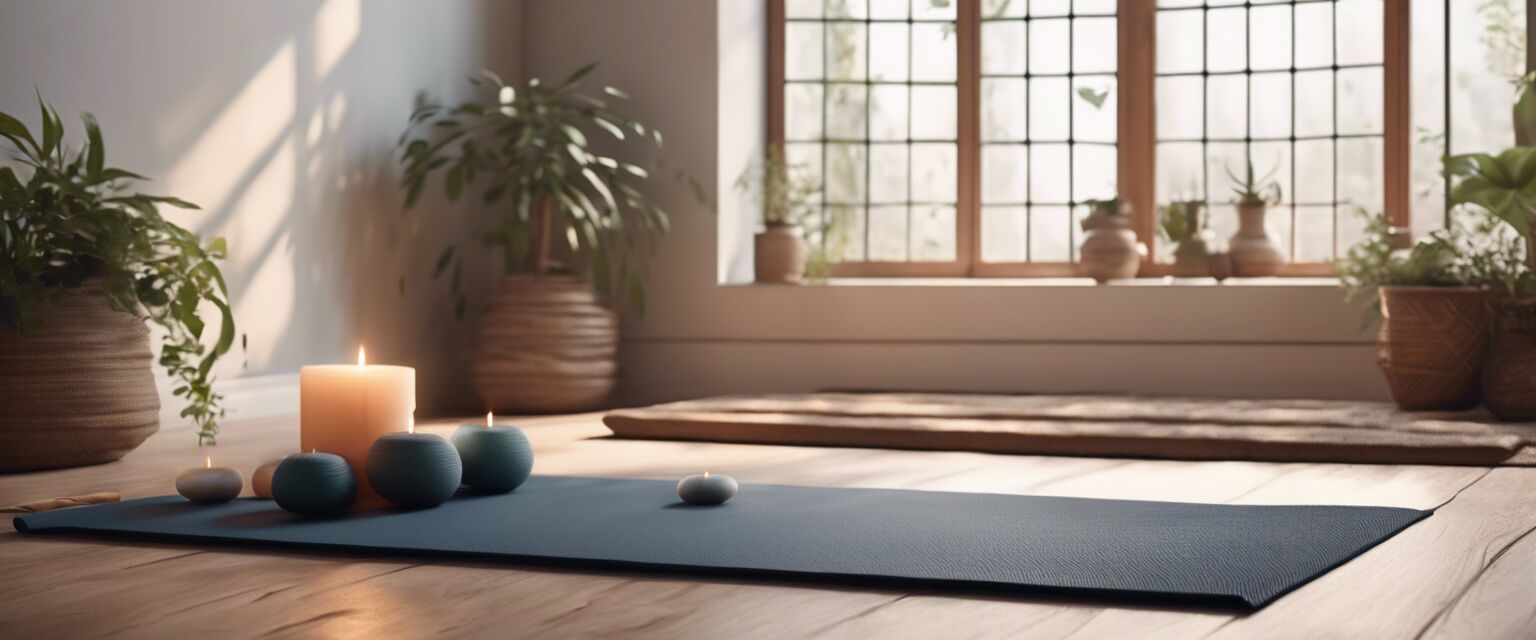
Introduction to Meditation
Key Takeaways
- Meditation is a practice to enhance mindfulness and relaxation.
- Regular practice may help to promote emotional health.
- Various techniques exist, including mindfulness, guided meditations, and transcendental meditation.
- Creating a dedicated meditation space can enhance your practice.
Meditation is a powerful technique that can help us achieve mental clarity, emotional stability, and bolster our overall well-being. In today's fast-paced world, it's crucial to find ways to calm our minds and connect with ourselves on a deeper level. This article serves as an introductory guide to meditation, offering insights into its benefits, techniques, and how to get started.
What is meditation?
Meditation is a practice where an individual uses a technique âsuch as mindfulness, or focusing the mind on a particular object, thought, or activityâ to train attention and awareness, and achieve a mentally clear and emotionally calm and stable state.
Benefits of meditation
Meditation offers numerous potential benefits. Hereâs a breakdown of some of the key advantages:
| Benefit | Description |
|---|---|
| Stress reduction | Regular meditation helps create a calm mind and reduces stress levels. |
| Increased focus | Helps improve attention span and concentration levels. |
| Enhanced self-awareness | Facilitates a deeper understanding of thoughts and feelings. |
| Emotional health | May promote emotional resilience and well-being. |
| Improved sleep | Meditation can relax the body and calm the mind, which may contribute to better sleep quality. |
Different types of meditation
There are various types of meditation techniques. Here are some of the most popular ones:
- Mindfulness meditation: Involves focusing on the present moment without judgment.
- Guided meditation: Involves guided sessions led by an instructor or audio.
- Transcendental meditation: A form of silent mantra meditation to foster a restful state.
- Loving-kindness meditation: A practice that promotes compassion and love toward oneself and others.
- Zen meditation: A traditional form that places emphasis on seated meditation and breathing.
Where to meditate
Choosing the right space is essential for meditation. Here are some tips for creating a calming environment:
Tips for beginners
- Choose a quiet space with minimal distractions.
- Consider using meditation cushions from our Meditation Cushions category for comfort.
- Make your environment pleasant with items from our Aromatherapy selection.
- Dim the lights or use soft lighting for a more soothing atmosphere.
- Keep your meditation space organized and clutter-free.
How to get started with meditation
Embarking on your meditation journey can be broken down into a few simple steps:
- Find a quiet and comfortable place to sit or lie down.
- Set a timer for the duration you wish to meditate, starting with just a few minutes.
- Close your eyes and take deep, slow breaths.
- Focus on your breath or a particular thought.
- If your mind wanders, gently redirect your focus back to your breath or thought.
- Open your eyes when the timer goes off and take a moment before getting up.
Incorporating meditation into your daily routine
To reap the benefits of meditation, consistency is key. Here are some strategies to incorporate meditation into your daily life:
- Meditate at the same time each day to build a routine.
- Use apps or guided sessions to structure your practice.
- Start with short sessions and gradually increase the time as you feel more comfortable.
- Consider journaling about your thoughts and challenges in a Mindfulness Journal after each session.
Common challenges faced during meditation
Many beginners encounter challenges while starting their meditation practice. Here are some common obstacles along with tips to overcome them:
| Challenge | Solution |
|---|---|
| Restlessness | Try focusing on your breath or using a guided session. |
| Difficulty concentrating | Start with short sessions to train your attention gradually. |
| Negative thoughts | Accept and let them pass, return your focus to your chosen point. |
| Frustration at progress | Remind yourself that meditation is a skill that improves over time with practice. |
| Not feeling relaxed | Explore various meditation techniques to find what works best for you. |
Conclusion
Meditation is a rewarding practice that can lead to a more peaceful and mindful life. By understanding its benefits, exploring various techniques, and establishing a consistent routine, you can experience positive changes in your emotional and mental well-being. Don't hesitate to dive deeper into meditation practices and consider exploring products that can enhance your experience, such as Yoga and Meditation Mats or Meditation Music Playlists.
Pros
- Enhances mental clarity and emotional stability.
- Easy to practice anywhere.
- Variety of techniques allows for personal preference.
- Helps develop a deeper connection with oneself.
Cons
- May require patience and dedication to see benefits.
- Some individuals may find it difficult to quiet their minds.
- Initial discomfort while adjusting to new practices.













